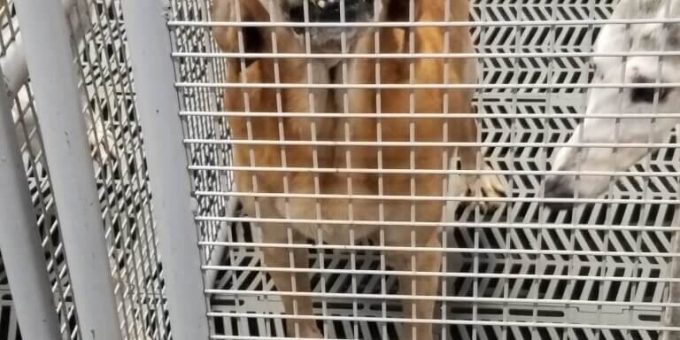
VALLONIA – Stray kittens, dogs, and cats seeking good homes and found in online ads and Facebook posts have all ended up caged and repeatedly bled at The Veterinarians’ Blood Bank in Jackson County, a breaking PETA undercover investigation reveals.
The following may contain disturbing images.
The Veterinarian’s Blood Bank, located in the 3000 block of State Road 135, currently offers canine and feline blood supplies. It does not function as an animal shelter taking in homeless animals or adopting them to the public.
According to the blood bank’s website, donors are maintained in a closed colony in an indoor/outdoor biosecure facility. The facility claims on its website that it provides ample space for exercise and socialization and that animals are provided on-site veterinary care and supervision. However, PETA disputes that statement.
The facility supplies blood to BluePearl Pet Hospital locations and VCA Animal Hospitals nationwide. A PETA investigation confined nearly 900 animals found in severely crowded pens. They say staff members draw the animal’s blood every three weeks. According to PETA, the blood is drawn from animals suffering from infections and cancer — while coaching staff to keep the operation “hush-hush.”
PETA’s undercover video footage reveals that some animals being kept captive at the blood bank were emaciated, that many had pressure sores and growths from being forced to lie on hard floors without respite, that dogs were seen with wounds after being attacked by stressed kennel mates — including one who developed a deep infection of the skin and underlying tissue, causing a massive wound that still hadn’t healed seven weeks later. The investigation found that cats with respiratory infections were still bled. And even senior animals and those too small to be used for blood collection were warehoused indefinitely.
As one worker told the undercover investigator, “Animals stay here until they die.”

“Animals at The Veterinarians’ Blood Bank are treated like live blood bags, serving a life sentence amid deafening noise and in barren pens, denied a home or family, and deprived of needed medical attention and any semblance of joy,” says PETA Senior Vice President Daphna Nachminovitch. “PETA is calling on this facility’s customers to immediately reexamine their relationship with this crude and cruel operation and any other blood bank that imprisons and exploits animals until they take their last breath.”
A manager offered workers $200 for each cat they brought to the facility, saying, “Where you get [them] from is not my business.” She said she acquired other cats from online ads, seeking a good home. After a worker brought in kittens, she said she “found off … Facebook,” one died, apparently having received no veterinary care. A manager said that workers aren’t blamed for animals’ deaths, stating, “They’re replaceable.”
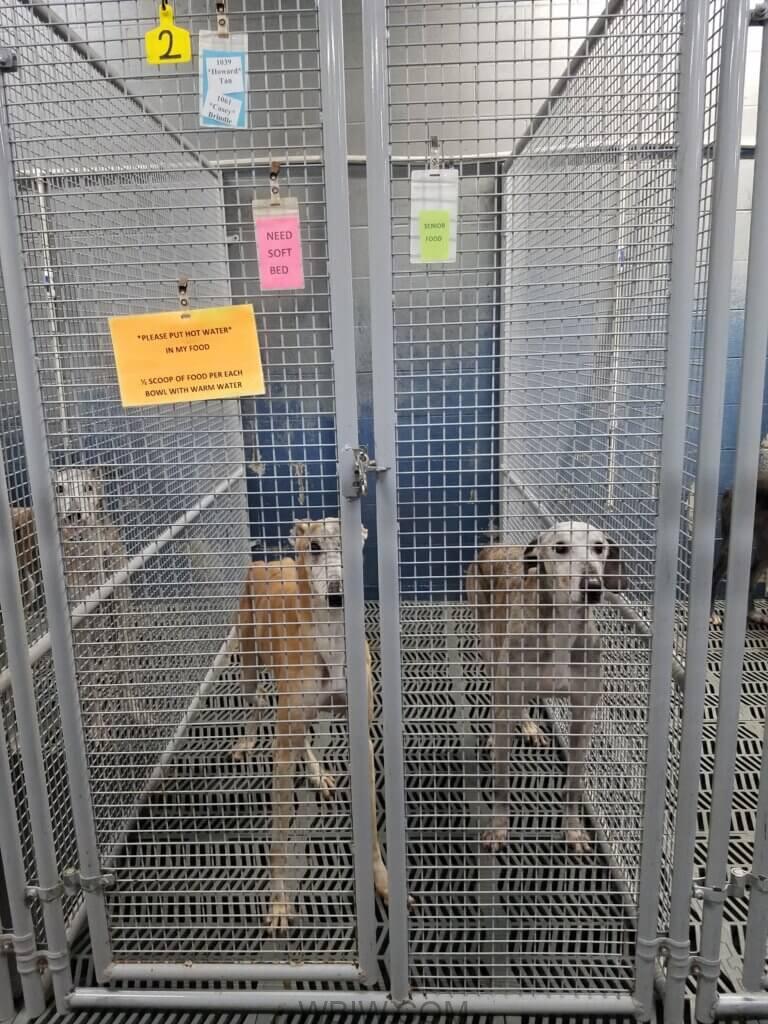
PETA’s investigator persuaded the facility to let them adopt some of the animals held there, including Vivi, a four-pound cat who cried out in pain from a lingering mouth infection for which she was denied adequate veterinary care. The investigator rushed Vivi to a veterinarian, who determined that her mouth was so infected that they had to remove all her teeth.
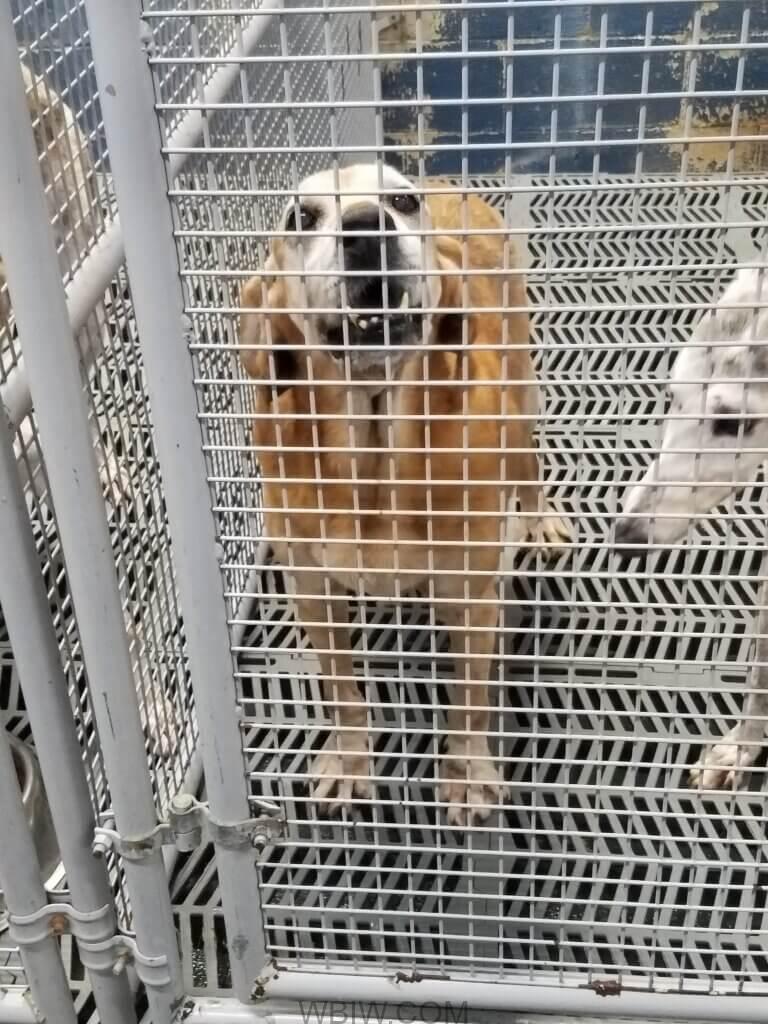
PETA also adopted Kolbie, a 12-year-old hound who was born at the facility and had been subjected to a “horrible” debarking surgery in which a worker admitted that “they bleed so bad” and that was performed only because the blood bank’s owners wanted to keep dogs quiet.
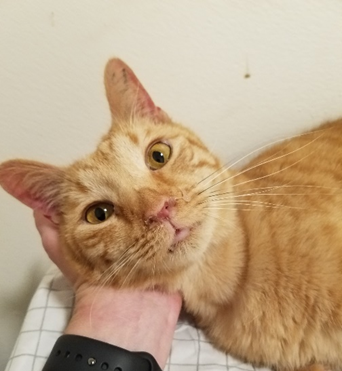
A cat named Jane, whom a manager planned to leave at “a barn out in a field” because she thought she had feline herpesvirus, and another cat named Fox, who was 13 years old and had bloody diarrhea that had not been treated. After his adoption, a veterinarian determined that Fox had gastrointestinal cancer, and he was euthanized.
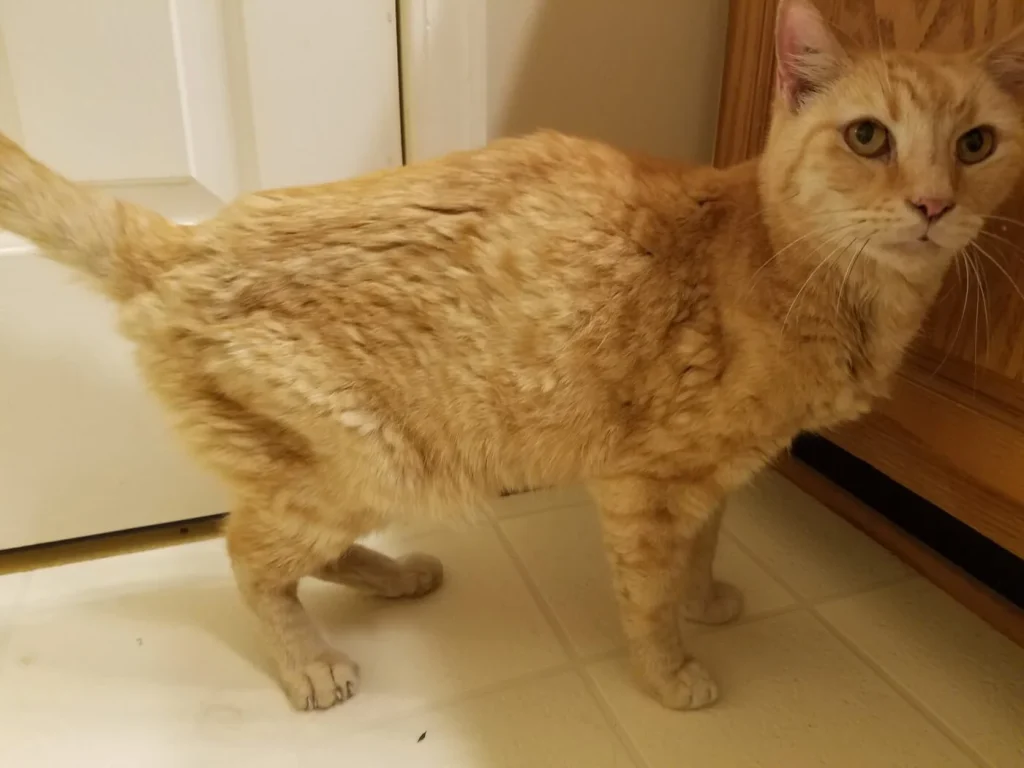
PETA has sent letters to BluePearl, VCA, and the other large veterinary chains that The Veterinarians’ Blood Bank lists as clients, alerting them to its findings and urging them to obtain blood only from healthy dogs and cats who live in homes with loving families.
PETA has also asked the Indiana State Board of Animal Health to investigate the facility for apparent violations of state law, seek an injunction stripping it of its license, and pursue other ways to protect the hundreds of animals still confined there.
At this time, no criminal charges have been filed against the facility.



